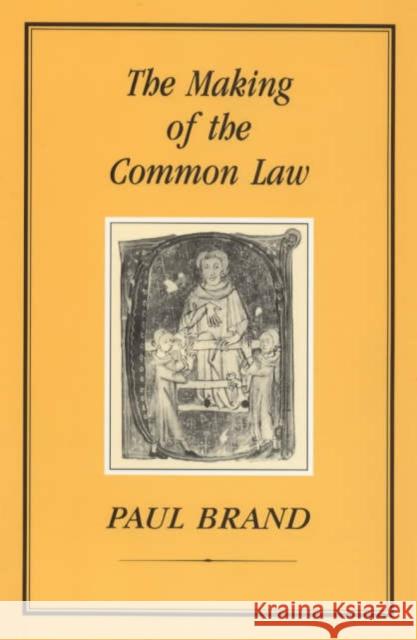The Making of the Common Law » książka
The Making of the Common Law
ISBN-13: 9781852850708 / Angielski / Twarda / 2003 / 504 str.
England was unique among the medieval kingdoms of Western Europe. In addition to developing a system of national courts with an extensive original jurisdiction and run on quasi-bureaucratic lines by royal justices, it also gave birth to a single national customary law which was applicable throughout the country. This was partly the product of judicial decisions made by the royal courts and partly the product of legislation. The great formative period of the Commom Law began during the reign of King Henry II but continued through to the early fourteenth century. Paul Brand possesses an unrivalled knowledge of the published and unpublished sources for this critical period. The Making of the Common Law brings together his essays, some previously unpublished, on this period. The essays on the making of the English legal system (which complement his book on The Origins of the English Legal Profession) include an important essay on 'Henry II and the Creation of the English Common Law', and 'Courtroom and Schoolroom: The Education of Lawyers in England prior to 1400', the essay which won the 1988 Donald W. Sutherland Prize of the American Society for Legal History. The devlopment of English law is discussed in a number of essays including a critical introduction to the 'Milsom thesis' on the origins of England land law and 'Lordship and Distraint in Thirteenth-Century England', a major reappraisal of the balance of power between lords and tenants in this period. The Common Law was taken by settler from England to North America and to Australasia. Its earliest venture overseas, however, was to Ireland. The Making of the Common Law includes a number of important essays on the transfer of English law and the creation of a legal system modelled on that of England in the medieval English lordship of Ireland.











